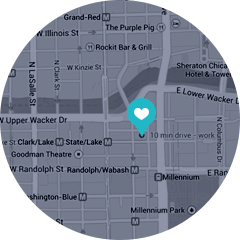Trauma Treatment Program
Child traumatic stress occurs when children and adolescents are exposed to extremely stressful events or traumatic situations that overwhelm their ability to cope. CRT's Trauma Treatment Program provides research-driven, trauma-informed programming that aims to increase the availability of therapeutic services for children, adolescents and their families who are at significant risk for, or have experienced, potentially traumatic events including: domestic violence, community violence, traumatic grief, childhood maltreatment, sexual abuse/assault, multiple foster care placements, military deployment, combat injury or death, natural disasters, and serious accidents or injuries. The youth we serve often struggle with the effects of complex trauma, including neurobehavioral difficulties, developmental delays, emotional and behavioral problems, learning disabilities and a plethora of conditions that adversely affect the quality of their lives.
Our TTP clinicians utilize well-established, developmentally appropriate screening and assessment tools to determine each child’s specific needs for treatment, which may include individual, group, family, and/or child-parent dyadic psychotherapy. As an affiliate member for the SAMHSA-funded National Child Traumatic Stress Network (NCTSN), our therapists have received training in innovative treatment approaches that translate into trauma treatment of the highest industry standard and most effectively address the evolving needs of traumatized youth. Our interventions include a variety of evidence-based, trauma-informed approaches to help children and families heal and recover from the impact of traumatic stress, including, but not limited to, Child Parent Psychotherapy (CPP), Structured Psychotherapy for Adolescents Responding to Stress (SPARCS), Trauma-Focused Cognitive Behavioral Therapy (TF-CBT), Attachment, Regulation, and Competency (ARC), Theraplay®, and Families OverComing Under Stress (FOCUS) for Military Families. In addition, when our clinicians provide individual, group and family therapeutic intervention, they draw from attachment, developmental, sensory-motor, and psychodynamic models, as well as art therapy and mind/body techniques that best meet the individualized needs of each child and family.



